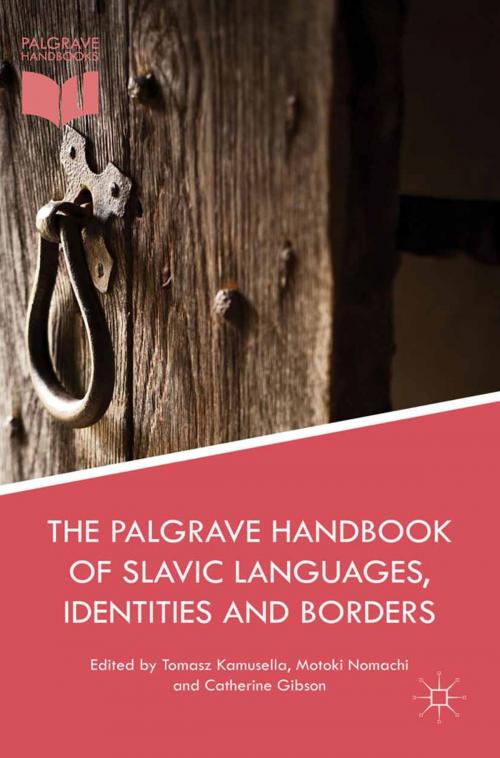The Palgrave Handbook of Slavic Languages, Identities and Borders
Nonfiction, Reference & Language, Foreign Languages, Slavic Languages, Language Arts, Linguistics| Author: | ISBN: | 9781137348395 | |
| Publisher: | Palgrave Macmillan UK | Publication: | April 29, 2016 |
| Imprint: | Palgrave Macmillan | Language: | English |
| Author: | |
| ISBN: | 9781137348395 |
| Publisher: | Palgrave Macmillan UK |
| Publication: | April 29, 2016 |
| Imprint: | Palgrave Macmillan |
| Language: | English |
This book analyzes the creation of languages across the Slavophone areas of the world and their deployment for political projects and identity building, mainly after 1989. It offers perspectives from a number of disciplines such as sociolinguistics, socio-political history and language policy.
Languages are artefacts of culture, meaning they are created by people. They are often used for identity building and maintenance, but in Central and Eastern Europe they became the basis of nation building and national statehood maintenance. The recent split of the Serbo-Croatian language in the wake of the break-up of Yugoslavia amply illustrates the highly politicized role of languages in this region, which is also home to most of the world’s Slavic-speakers. This volume presents and analyzes the creation of languages across the Slavophone areas of the world and their deployment for political projects and identity building, mainly after 1989. The overview concludes with a reflection on the recent rise of Slavophone speech communities in Western Europe and Israel. The book brings together renowned international scholars who offer a variety of perspectives from a number of disciplines and sub-fields such as sociolinguistics, socio-political history and language policy, making this book of great interest to historians, sociologists, political scientists and anthropologists interested in Central and Eastern Europe and Slavic Studies.
This book analyzes the creation of languages across the Slavophone areas of the world and their deployment for political projects and identity building, mainly after 1989. It offers perspectives from a number of disciplines such as sociolinguistics, socio-political history and language policy.
Languages are artefacts of culture, meaning they are created by people. They are often used for identity building and maintenance, but in Central and Eastern Europe they became the basis of nation building and national statehood maintenance. The recent split of the Serbo-Croatian language in the wake of the break-up of Yugoslavia amply illustrates the highly politicized role of languages in this region, which is also home to most of the world’s Slavic-speakers. This volume presents and analyzes the creation of languages across the Slavophone areas of the world and their deployment for political projects and identity building, mainly after 1989. The overview concludes with a reflection on the recent rise of Slavophone speech communities in Western Europe and Israel. The book brings together renowned international scholars who offer a variety of perspectives from a number of disciplines and sub-fields such as sociolinguistics, socio-political history and language policy, making this book of great interest to historians, sociologists, political scientists and anthropologists interested in Central and Eastern Europe and Slavic Studies.















